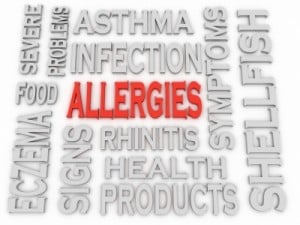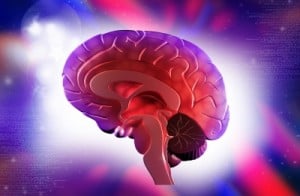
Have you ever wondered what’s going on inside of your brain when you are in love? Falling in love is exciting, exhilarating, comforting, and also stressful to the body, all at the same time! It should be considered normal to have feelings of confusion when falling in love, because you are putting your body through quite a spin of hormonal reactions! Read about the five substances your body uses in reaction to falling love!
Adrenaline
Your heart is racing, your hands are getting sweaty, your mouth feels as dry as the desert, you suddenly have so much energy that you feel like bouncing off the walls, and all because that special someone walked in the room! What’s up with that? Why does your body have this physical reaction to what seems to be strictly emotional? The truth is that the mind and body are ever-so connected in many ways, and in response to the emotional reaction that occurs when seeing that special someone, your body releases adrenaline. This same substance is released into the body as a stress response when a person feels strong emotions in other situations as well like when a person feels scared or angry. No wonder love makes you feel crazy; it gets you all disheveled and jumpy!
Cortisol
Along with adrenaline, another reason your body goes into this fight-or-flight mode is because your cortisol levels rise as well. Cortisol is a steroid hormone that is released in response to stress. In fact, it is often referred to specifically as the ‘stress hormone’. Yes, falling in love can actually affect and change your hormone production! Combined with the adrenaline your body is pumping through your veins, the cortisol only adds to stress you experience.
Dopamine
Aside from the slightly scary and ultimately stress-inducing (literally) side effects of falling in love, there are some lovely and positive feelings as well which are generated by dopamine. The ‘desire and reward’ part of our brain is triggered with dopamine, and as a result, people experience an extreme rush of pleasure. In fact, this is the very chemical that is triggered when people use cocaine! When a person is falling in love, they often experience an overall energy boost, increase in focus, a decrease in the desire to sleep or eat, and increased feelings of euphoria. These are all solid indicators and signs of increased dopamine.
Serotonin
When you first fall in love, it seems nearly impossible to think of anything else in the world besides that special somebody. There is a chemical explanation for this experience! Studies have shown that people in love tend to have lower levels of serotonin, a chemical neurotransmitter responsible for mood balance. In fact, lower levels of serotonin are common amongst people with obsessive-compulsive disorder, or OCD, which definitely explains the fanatical infatuation, particularly for a budding romance.
Oxytocin
While serotonin levels are known to drop in those who are falling in love, the production of the naturally occurring hormone oxytocin increases dramatically. Oxytocin is commonly known as the ‘bonding’ or ‘cuddling’ hormone because of the feelings of intimacy it creates for those who are producing it. This hormone can be released by squeezing a person in an embrace, but is known to also occur during orgasm. Additionally, those who are experiencing the effects of oxytocin in the body have shown to be more sympathetic and open with how they feel, both of which are very commonly experienced when you fall in love. Studies have also shown that people with higher levels of oxytocin stay in relationships longer than couples with low levels of oxytocin. Many people refer to oxytocin as the glue in developing love and relationships.
Image courtesy of digitalart at FreeDigitalPhotos.net








